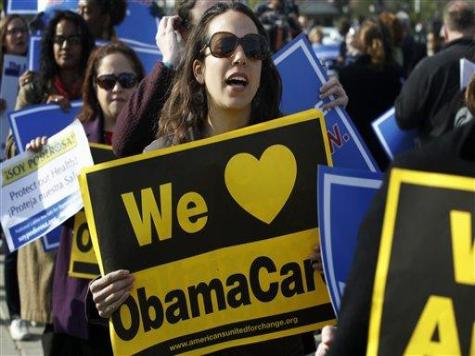NPR’s On the Media today featured a conversation between host Brooke Gladstone and Politico’s Josh Gerstein about “how challenging Obamacare on constitutional grounds went from a zany fringe idea to a mainstream conversation.”
Likewise, all week long, liberal media commentators have been panicking over the fact that the Supreme Court actually asked basic questions about the constitutionality of the massive law and the individual mandate at its core–and that the Obama administration had no good answers.
The only real surprise–even for regular critics of the mainstream media–was the degree to which so-called legal experts, journalists, and TV talking heads continued to live in an elite, left-wing, “I don’t know anyone who voted for Nixon” bubble.
Now that it appears the Supreme Court is likely to overturn Obamacare, in whole or in part–after smug predictions that even conservative justices would uphold the law–the left and the media are trying, not-so-subtly, to pressure the nation’s highest court.
They are accusing the Supreme Court of being politicized–though that criticism is applied almost exclusively to the conservative justices, while the liberal justices are simply expected to vote the party line. And they are deriding the likely majority against Obamacare as the “Tea Party” Supreme Court.
In the same vein, Gladstone and Gerstein cast the arguments against the constitutionality of Obamacare as a far-right phenomenon that began with op-eds by “extremely conservative” legal commentators, and were amplified by the Tea Party movement and the media.
While it’s nice to see members of the media sympathetic (I presume) to the idea of a “living constitution” worry–for once!–about the effect that public opinion might have upon the Supreme Court, what they have done is both nakedly partisan and historically incorrect.
Opponents of Obamacare have long worried about the constitutionality of Obamacare–though the media was too busy accusing us of being racists to notice. The cost of the bill was one thing; the massive new powers it gave to the federal government were the focus of Tea Party criticism for months.
Yes, the individual mandate became a focus only after the law had passed–but that’s because almost no one, including those who voted for the bill, had read it. Incidentally, Obama himself criticized the idea of an individual mandate in debate with Hillary Clinton in 2008–was he on the “fringe” then, too?
The fact that some Republicans–including Mitt Romney–might once have supported the individual mandate did not make it any less problematic. The frustration of the Tea Party and constitutional conservatives was directed at Republican insiders as much as it was against radical Democrats.
Gladstone and Gerstein focus on an infamous episode in which then-Speaker of the House Nancy Pelosi was taken aback by a question from a journalist in October 2009 about the constitutionality of Obamacare. To them, her surprise is proof that such questions were a “fringe” phenomenon.
But to conservatives–whom the media seemed determined to ignore–Pelosi’s answer confirmed that she and her colleagues, including many Republicans, did not seem to care about the Constitution and would trample it in their determination to expand the size and power of government.
The Supreme Court may yet uphold Obamacare, but the oral arguments will not soon be forgotten. One hopes–beyond reason–that the mainstream media may realize those Tea Party “extremists” had a point, or that the real “extremists” are those in the media and the academy who told us Obamacare was a shoo-in.

COMMENTS
Please let us know if you're having issues with commenting.